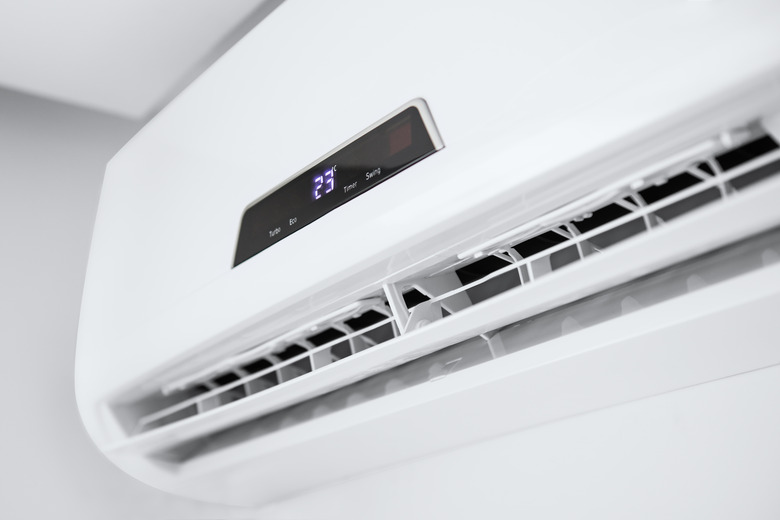Does Turning On The Air Conditioner With The Cover On Break It?
We may receive a commission on purchases made from links.
Never run an air conditioner with its cover on. Air conditioners need to exchange heat and condensation in order to function efficiently, and when an air conditioner runs in a condition where airflow is not optimal, the appliance's components get compromised. While mistakenly, briefly powering on an air conditioner is not likely to immediately burn it out, an air conditioner that is covered will not be able to cool the air and is likely to quickly overheat and burn out.
Tip
Running an air conditioner with a cover on can damage the unit. The cover prevents air flow and keeps the air conditioner from exchanging heat and condensation.
How Air Conditioners Work
How Air Conditioners Work
An air conditioner works by taking in indoor air and blowing it across cold copper coils filled with refrigerant. These coils absorb the heat in the air and pump it outside the home, where it is dispersed. Air conditioners also remove humidity from the air, and the condensation drains away from the unit.
Running an air conditioner with its cover on doesn't allow for this exchange of heat and condensation. It will put undo stress on the unit, which can damage internal components that keep the air conditioner running. Leaving the cover on can cause the unit to overheat since the heat has nowhere to go. It also blocks airflow, which causes increased pressure that can burn out the compressor quickly.
Condensation in Air Conditioners
Condensation in Air Conditioners
Condensation needs to drain from window and wall air conditioners in order for the unit to run effectively. Condensation gathers when hot indoor air comes in contact with the cold refrigerant coils. These coils "sweat" in the same way a cold glass of water sweats in a hot room. If the air conditioner cannot effectively drain this water because it is covered, the unit may sense condensation overflow and shut itself off.
Central Air Conditioner Heat Exchange
Central Air Conditioner Heat Exchange
Some people cover their central air conditioners' outside components in seasons when the air conditioner is out of use, as they can be costly to repair or replace. An AC cover keeps snow and ice out of the unit as well as dirt and debris. It also prevents water from going inside and freezing, potentially damaging the air conditioner. Leaving the cover on such a unit can be more costly, however, if you forget to take it off before the first use.
The inside of a central air conditioner's outdoor condenser is lined in copper coils that absorb heat from inside the home. There is a large fan in the center of these coils that cycles air through the unit and allows for the dumping of heat. If the cover remains on, these coils cannot cool, so the air cycles back into the home hot. This causes the air conditioner to run longer and can lead to damage to the unit.
Remembering to Uncover
Remembering to Uncover
Many central air conditioners have outside power shutoffs located near their condensers. When you cover your air conditioner for winter as part of your air conditioner maintenance, turn the power off at that location. When you turn on your unit in the summer, you will have a reminder that the unit is covered, and you can uncover it when you turn the power back on without causing any damage.
